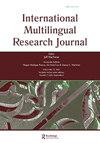Grappling with the transformative potential of translanguaging pedagogy in an elementary school with Syrian refugees in post-coup Turkey
IF 2.1
1区 文学
Q2 EDUCATION & EDUCATIONAL RESEARCH
引用次数: 1
Abstract
ABSTRACT Translanguaging pedagogies have been documented to support language minoritized students in various ways, such as supporting their academic learning, affirming their bi-/multilingual and cultural identities, and disrupting the colonial and monolingual ideologies dominating school curricula. Yet, very few scholars have pointed to the existing barriers in schools and societies hindering educators from fully achieving the transformative potential of translanguaging pedagogy. In this collaborative inquiry, we contribute to this limited scholarship by exploring the potential and challenges of implementing a translanguaging pedagogy in an ethno-linguistically diverse yet monolingual Turkish elementary school “hosting” Syrian refugees in a post-coup Turkey during a state of emergency. Drawing on a series of individual and joint interviews with two bilingual teachers and co-created lesson plans over a semester, we demonstrate how teachers used translanguaging to raise metalinguistic awareness, support academic learning, build rapport, and promote empathy among local and refugee students in their classrooms. We also discuss ecological constraints on a sustainable translanguaging pedagogy, including refugee students’ negative reactions to Arabic at school, impediments to parental involvement, the stigma around Kurdish, and the political climate in Turkey after the 2016 coup attempt.在政变后的土耳其一所有叙利亚难民的小学里,挖掘跨语言教学法的变革潜力
摘要:翻译教学法已被证明以各种方式支持语言少数民族学生,如支持他们的学术学习,确认他们的双/多语言和文化身份,以及颠覆主导学校课程的殖民主义和单语意识形态。然而,很少有学者指出,学校和社会中存在的障碍阻碍了教育工作者充分发挥跨语言教学法的变革潜力。在这项合作调查中,我们通过探索在一所种族语言多样但单语的土耳其小学实施跨语言教学法的潜力和挑战,为这项有限的奖学金做出了贡献。这所小学在政变后的土耳其紧急状态下“收容”了叙利亚难民。通过对两位双语教师的一系列个人和联合采访,以及在一个学期内共同制定的课程计划,我们展示了教师如何利用跨语言提高元语言意识,支持学术学习,建立融洽关系,并在课堂上促进当地和难民学生的同理心。我们还讨论了可持续跨语言教学法的生态制约因素,包括难民学生在学校对阿拉伯语的负面反应、父母参与的障碍、库尔德的耻辱感,以及2016年政变后土耳其的政治气候。
本文章由计算机程序翻译,如有差异,请以英文原文为准。
求助全文
约1分钟内获得全文
求助全文
来源期刊
CiteScore
4.10
自引率
4.80%
发文量
19
期刊介绍:
The International Multilingual Research Journal (IMRJ) invites scholarly contributions with strong interdisciplinary perspectives to understand and promote bi/multilingualism, bi/multi-literacy, and linguistic democracy. The journal’s focus is on these topics as related to languages other than English as well as dialectal variations of English. It has three thematic emphases: the intersection of language and culture, the dialectics of the local and global, and comparative models within and across contexts. IMRJ is committed to promoting equity, access, and social justice in education, and to offering accessible research and policy analyses to better inform scholars, educators, students, and policy makers. IMRJ is particularly interested in scholarship grounded in interdisciplinary frameworks that offer insights from linguistics, applied linguistics, education, globalization and immigration studies, cultural psychology, linguistic and psychological anthropology, sociolinguistics, literacy studies, post-colonial studies, critical race theory, and critical theory and pedagogy. It seeks theoretical and empirical scholarship with implications for research, policy, and practice. Submissions of research articles based on quantitative, qualitative, and mixed methods are encouraged. The journal includes book reviews and two occasional sections: Perspectives and Research Notes. Perspectives allows for informed debate and exchanges on current issues and hot topics related to bi/multilingualism, bi/multi-literacy, and linguistic democracy from research, practice, and policy perspectives. Research Notes are shorter submissions that provide updates on major research projects and trends in the field.

 求助内容:
求助内容: 应助结果提醒方式:
应助结果提醒方式:


